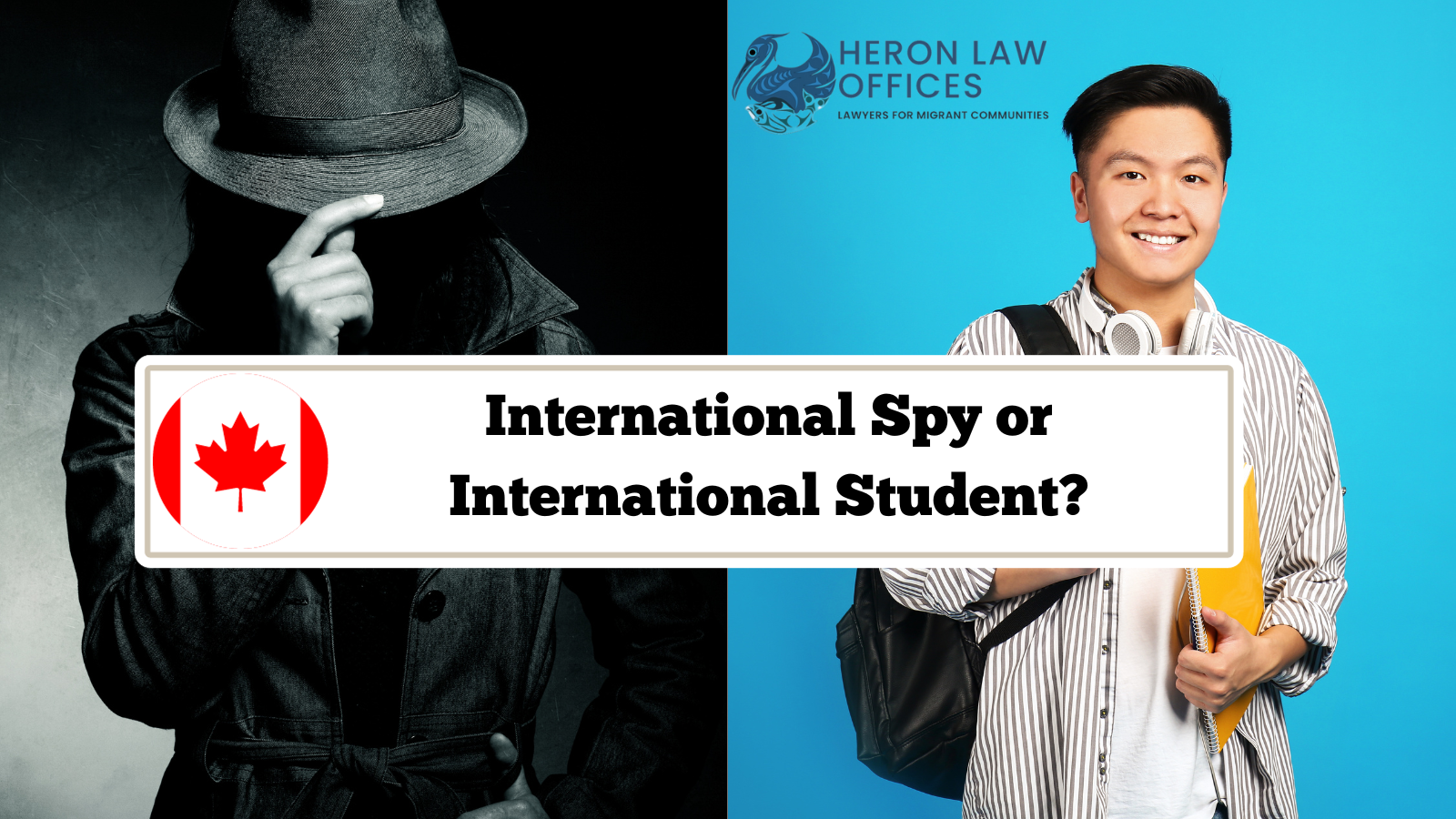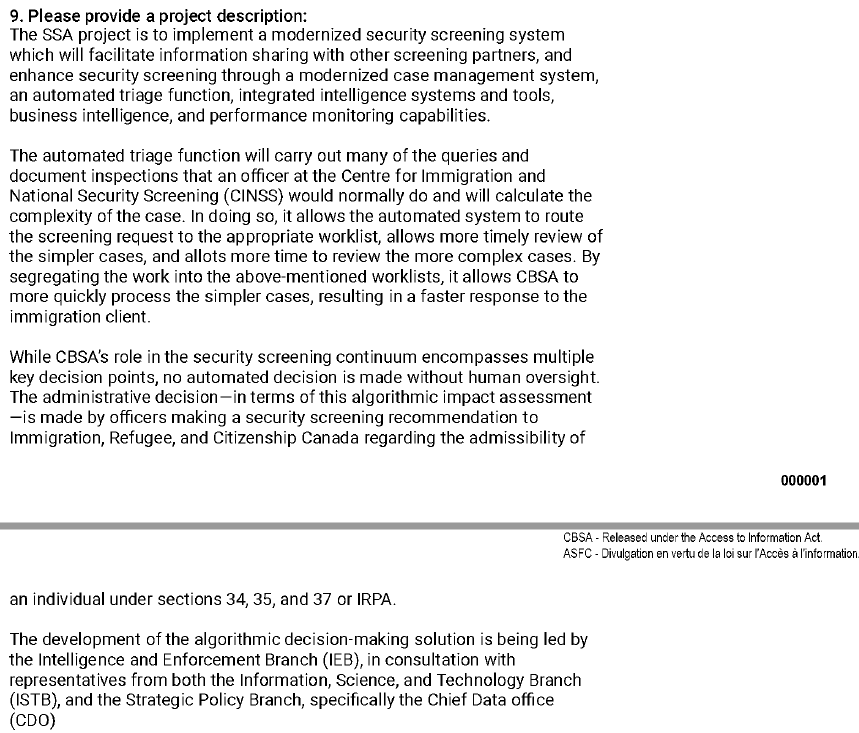Part 2A – An Annotated Review of Li and the Unforeseen and Unsettled Legal Consequences of Expanding the Definition of Espionage
Introduction
As promised, it is time for part II of my blog part series on the Federal Court decision of Li v. Canada (Citizenship and Immigration) 2023 FC 1753.
I will write this blog over several days. Today represents Part 2A which covers Sections I-V of Chief Justice Crampton’s decision. Sections VI to VIII, which includes the issues and analysis, will form Part 2B. To keep this more accessible to a more general audience and given the broad implications of this decision, I will try my best to keep this as plain language as possible.
Today, I set the scene a bit with a lot of interesting preliminary discussions and factual/legal framing, in the next I engage the core of the legal analysis with a review of the issues, standard of review, and analysis sections of the decision (aforementioned Part 2B) and if you stay until third part (Part 2C) I will highlight some of the unforeseen and unsettled legal consequences created by the decision. This decision is simply a gamechanger for Canadian immigration law as we head to uncertain times.
I want to be clear at the outset that what I will also focus more on the substantive nature of the security regime and inadmissibility, rather than to try and analyze the judgment from a purely administrative law lens of fairness and reasonableness. As such, my concerns too are going to be centered and focused on the uncertainties created by an inadmissibility regime that punishes individuals not necessarily for what they have done, but for what they may do – and my call for a greater personalized and individualized assessment needed for such a finding to be made, given the severe consequences of being labelled as an individual inadmissible for espionage.
As a further prelude, I will say that what I have noticed from the Chief Justice’s last two major decision, Li and his decision in Sidhu, involving the horrible Humboldt Broncos tragedy, shows a willingness to engage in the broader societal impacts of immigration’s administrative law consequences. I am aware that the triage system for selecting cases involves the Chief Justice choosing the assignment of certain cases among the judges. It is not surprising in my mind that he chose these two cases to take on, rendered in close succession, that have generated significant outside attention.
I suspect administrative law will receive more of this “public” attention moving forward, and will be asked to interrogate larger societal questions – involving issues such as racism, bias, technological developments, inadmissibility, Indigenous sovereignty, among other hot button issues. As the Federal Court becomes more accessible and even more relied upon, folks will pay more attention. Decisions that are more responsive, written for losing parties, and aware of the potential consequences of either trying to establish or avoid establishing precedent/precedential value will be very crucial.
Now without further ado, let’s get into Li.
The Li Decision
I. Overview
Similarly to Sidhu, the Chief Justice starts the decision off in paragraph 1 with quite a bold statement. After I read it the first time, I both knew this decision would be impactful but also had a gut sense before even reading the facts that this probably was a decision favouring the Government.
[1] As hostile state actors increasingly make use of non-traditional methods to obtain sensitive information in Canada or abroad, contrary to Canada’s interests, the Court’s appreciation of what constitutes
espionagemust evolve.
A couple things to note in this first paragraph.
First, the word hostile definitely raises flags. One asks what countries are currently hostile? What is the timeframe considered for the hostility. One also thinks of about Canada’s interests. A few years ago Canada’s interests were apparently economic trade-driven with certain countries. Those interests could change depending on window. In the criminality and equivalency context, Tran advised us about retroactivity/retrospectivity and ensuring alignment of individuals knowing the consequences at the time they commit an action. I think the national security context arguably skews this context signficantly, but here we have now seen individuals who are punished (in a non-criminal sense) for associations they may have had in the past and tying these to possibly forseeable future events that may occur in the future, without even having committed any action per se. We have seen cases like Geng, from last year, where individuals who were once permanent residents of Canada having cleared security checks from years prior are being re-engaged by the systems as the investigative goalposts and geo-politics have shifted.
A reminder and as a framing point, this idea of “Canada’s interests” is from the legislation itself in s.34(1)(a) of IRPA.
Security
-
34 (1) A permanent resident or a foreign national is inadmissible on security grounds for
-
(a) engaging in an act of espionage that is against Canada or that is contrary to Canada’s interests;
-
Second, it is quite telling that the Chief Justice utilized the wording “Court’s appreciation.” To me it represents, and quite correctly so, at least a stated intention to not cross over to stepping into the role of the legislature or to re-litigate the case. He wants to portray this is a case about judicial intepretation. We can assess later how well the decision reflects this, in situ.
The following three paragraphs complete the overview, including summarizing the Applicant’s arguments – namely that the Officer adopted an overly broad definition of the word “espionage” and that evidence was misapprehended and ignored, and stating his decision to reject the application (paras 4-5).
II. Background
Starting at paragraph 6 we start to learn more aobut Mr. Li. He is a PRC citizen. He attempted to apply to the University of Waterloo for a PhD Program in Mechanical and Mechatronics Engineering. There were delays in background checks (a common issue I have recently commented about). The Applicant was given a last extension to obtain a study permit for a PhD project (para 7). This last extension nature may have eventually become a double-edged sword when it came to the matter covering into a JR of the final decision, but also in the parsing of a non-need to certify a question (as we will discuss in the next blog). We learn through the judgment as well that the decision was started by way of what was likely mandamus (para 8).
We learn also that the Minister applied for non-disclosure of certain information in the Certified Tribunal Record (“CTR”) under s.87 of the IRPA. Let us pause here to take a look at that provision.
Application for non-disclosure — judicial review and appeal
87 The Minister may, during a judicial review, apply for the non-disclosure of information or other evidence. Section 83 — other than the obligations to appoint a special advocate and to provide a summary — applies in respect of the proceeding and in respect of any appeal of a decision made in the proceeding, with any necessary modifications.
2001, c. 27, s. 87
2008, c. 3, s. 4
2015, c. 20, s. 60
For those interested in another s.87 redaction case where the matter got a bit more complex with the applicant having actually succeeded in removing the redactions, check out Kiss v. Canada (Citizenship and Immigration), 2023 FC 1147 (CanLII), <https://canlii.ca/t/jzwtx> at paras 21-34.
We learn that Mr. Li learns from this redacted certified tribunal record (“CTR”) that the Center for Immigration National Security Screening recommended that there are reasonable grounds to believe he is inadmissible under s.34(1)(a) of IRPA.
Another pause. What is the Center for Immigration National Security Screening? I will not go into too much detail here (a whole other blog topic) but for some light background reading I would suggest looking at the “Evaluation of the Immigration National Security Screening Program” posted by the CBSA.
I also have knowledge that they are utilizing technological automation in these cases through the Security Screening Automation (“SSA”) project, per the unreleased draft Algorithmic Impact Assessment (“AIA”).
What we likely think happened, and we know of several other institutions that have been tagged with risk indicators (using tools such as the Integrity Trends Analysis Tool).
Paragraphs 11 and 13 of the decision then provide some interesting context. We learn that the Respondent represented that it would not rely on redacted information for the purposes for the purpose of responding to the application for judicial review, but also that the Officer did not rely on any redacted information in making the Decision.
I am still awaiting a copy of the file record from the Federal Court, but I do question, especially getting the information we did about the risk indicators in Kiss through this preliminary decision on the Minister’s s.87 motion how it could not have been relied on in some way. Presumably, the redacted information was indicator information, showing how the particular institution was flagged that led to the investigation. How the school (Beihang, we learn in paragraph 15) was flagged, what information was provided to the flaggers, and the technology utilized is something I forsee will be a point of legal conflict moving forward.
The other point to take from this section is the mandamus application, it appears triggered the steps taken and in this case the Chief Justice actually ordered a decision to be made within three weeks (see para 12).
While I have had mandamus claims trigger negative action (a concern that is often, in my opinion, under-discussed as a possibility), I have not yet to date had the Federal Court judge direct a decision to judgement within one of my proceedings. What we learn is that this led to a procedural fairness interview four days before the deadline, and it appears a refusal shortly thereafter.
I question whether there was an opportunity (beyond an interview) for the Applicant to put in evidence, such as expert affidavits, to counter the Government’s position. However, I will note – based on my own experience as counsel – that attempting to gather evidence to […]



